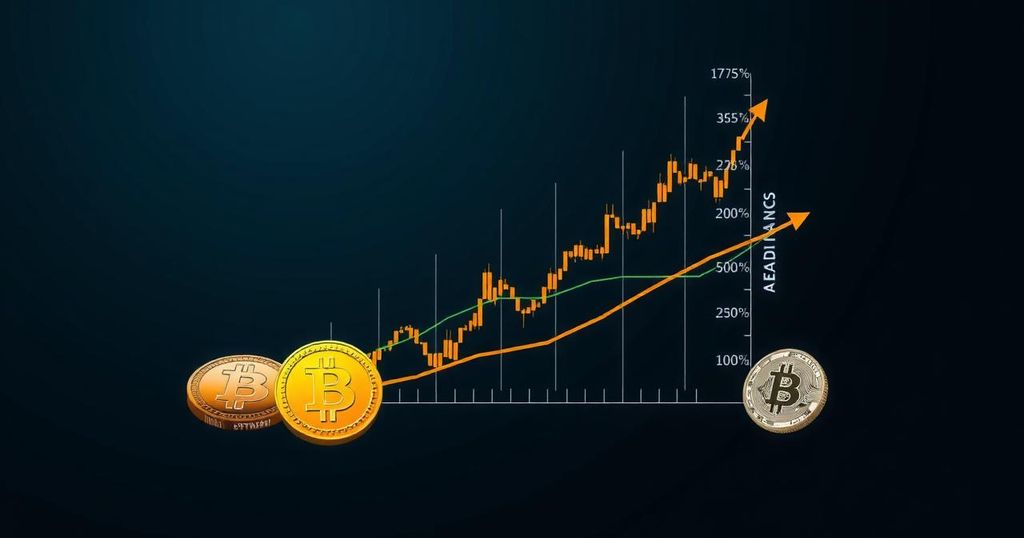Arthur Hayes Warns: Fed Rate Cuts May Lead to Crypto Market Crash While Central Banking Era Ends
Summary
Arthur Hayes, Chief Investment Officer of Maelstrom, raises alarms about the effects of a soon-to-come Fed rate cut. He argues it could lead to market crashes for risk assets, including cryptocurrencies, due to heightened inflation and Japanese yen strength. While he anticipates a potential recovery in yield-bearing digital assets, he expresses skepticism about the role of central banks moving forward, suggesting a shift towards more government-led economic strategies.
Arthur Hayes, the Chief Investment Officer of Maelstrom and co-founder of BitMEX, has expressed concerns regarding the forthcoming Federal Reserve rate cut, which is anticipated to occur imminently. Hayes suggested that this reduction might adversely affect various risk assets, including cryptocurrencies, acknowledging that while liquidity easing typically boosts Bitcoin prices, the current economic conditions may lead to inflationary pressures. He warned that lower interest rates would exacerbate existing inflation issues and potentially strengthen the Japanese yen, resulting in a broad market downturn. In a discussion with CoinDesk at the Token2049 conference in Singapore, Hayes emphasized the precarious balance between U.S. and Japanese monetary policies. He indicated that narrowing interest rate differentials would likely result in a significant appreciation of the yen, which could destabilize risk assets that are often financed through yen-denominated loans. Hayes illustrated this point by referencing the market reactions observed when the Bank of Japan raised its benchmark borrowing rate earlier this year, He elaborated on the implications of this reduced rate environment, suggesting that interest rates in the United States could revert to near-zero. This scenario may drive investors to seek alternative yields in the cryptocurrency sector, potentially revitalizing interest in assets with yield-bearing capabilities, such as Ether and specific DeFi products. Particularly, Hayes highlighted Ethena’s USDe and Pendle’s BTC staking as key beneficiaries in a low-rate landscape. Furthermore, Hayes shared his perspective on the changing role of central banks. He concurs with Scottish market strategist Russel Napier, who posits that governments are beginning to take control of the money supply, diminishing the central banks’ relevance. Hayes articulated optimism regarding this transition for the cryptocurrency market, underscoring the advantages of digital assets’ portability amidst evolving liquidity creation focused on specialized sectors of the economy. Overall, while a rate cut is approaching, Hayes articulates a combination of caution and opportunity, foreshadowing challenges for investors but also potential rewards within the cryptocurrency space.
The article discusses the implications of an anticipated Federal Reserve rate cut on risk assets, particularly cryptocurrencies, as articulated by Arthur Hayes, a prominent figure in the cryptocurrency world. The primary focus is on how this monetary policy shift may lead to inflationary pressures and impacts on currency valuation, specifically the Japanese yen. Hayes’s views are set against the backdrop of a larger narrative regarding the evolving role of central banks and fiscal policy, particularly as articulated by other financial strategists. Hayes’s insights are further contextualized within the ongoing discussions around liquidity provisions and interest rates, exploring the future landscape of investment opportunities in the cryptocurrency market amidst these macroeconomic changes.
In conclusion, Arthur Hayes presents a critical analysis of the upcoming Federal Reserve rate cut and its potential ramifications on the cryptocurrency markets. He emphasizes the risks of inflation and currency strength resulting from policy shifts, while also identifying opportunities for yield-seeking investors in the digital asset space. Lastly, Hayes advocates for the evolving dynamic between government policies and central banking, perceiving it as a progressive development for cryptocurrencies.
Original Source: www.coindesk.com








Post Comment